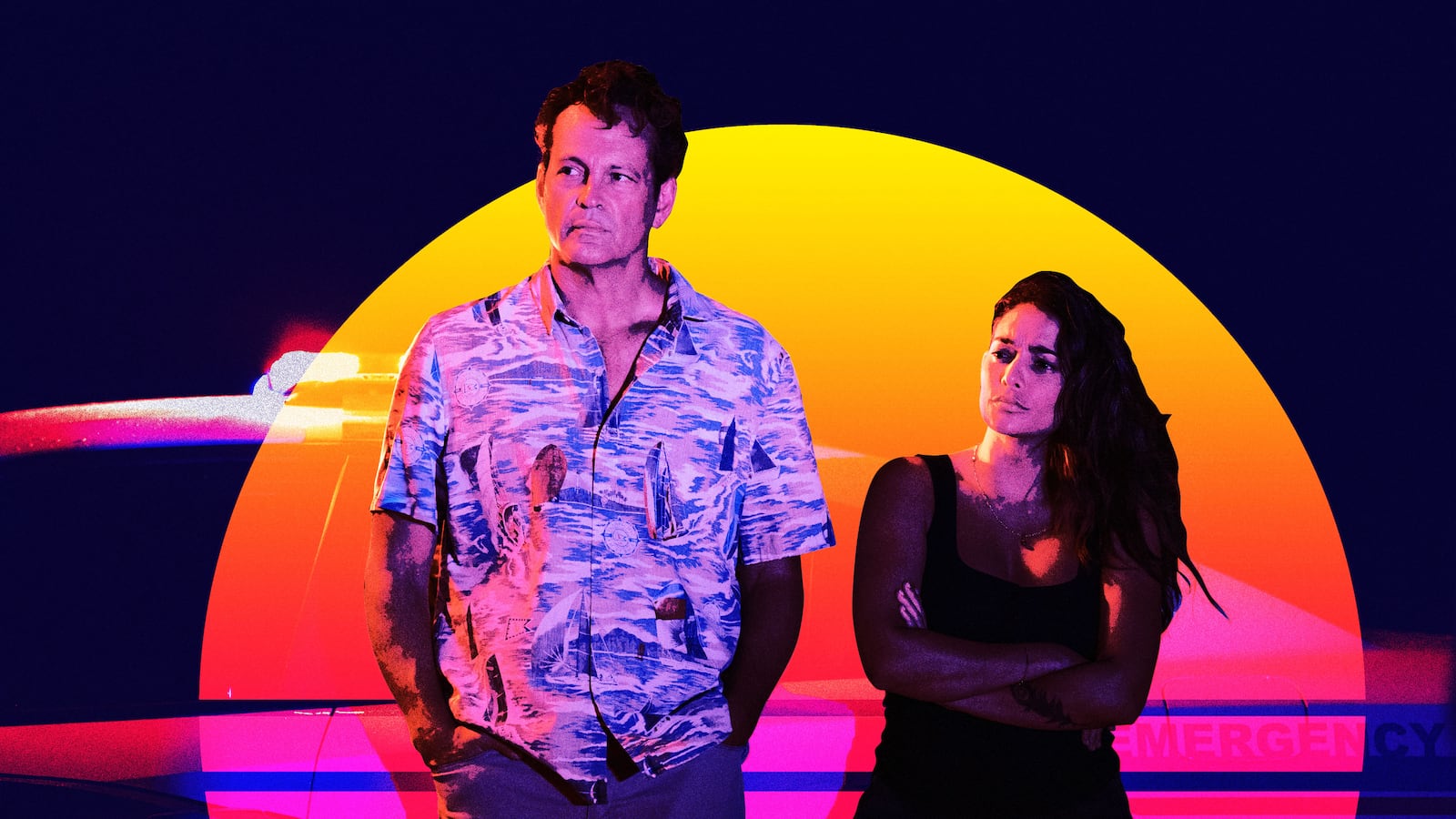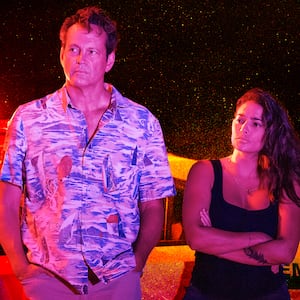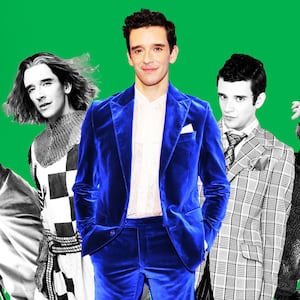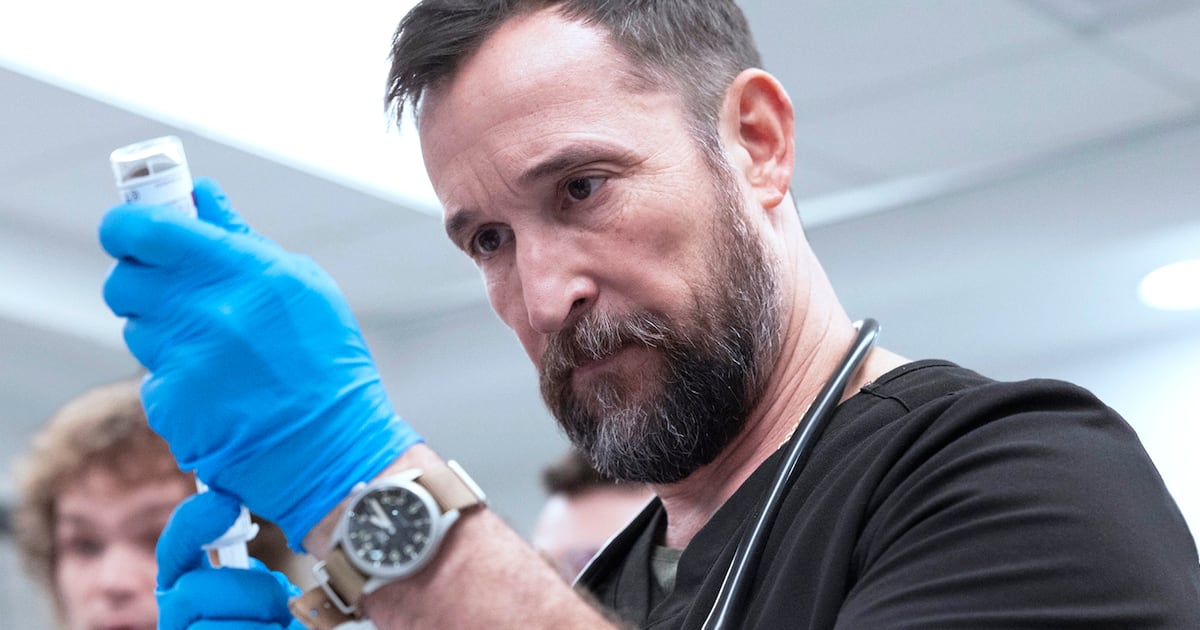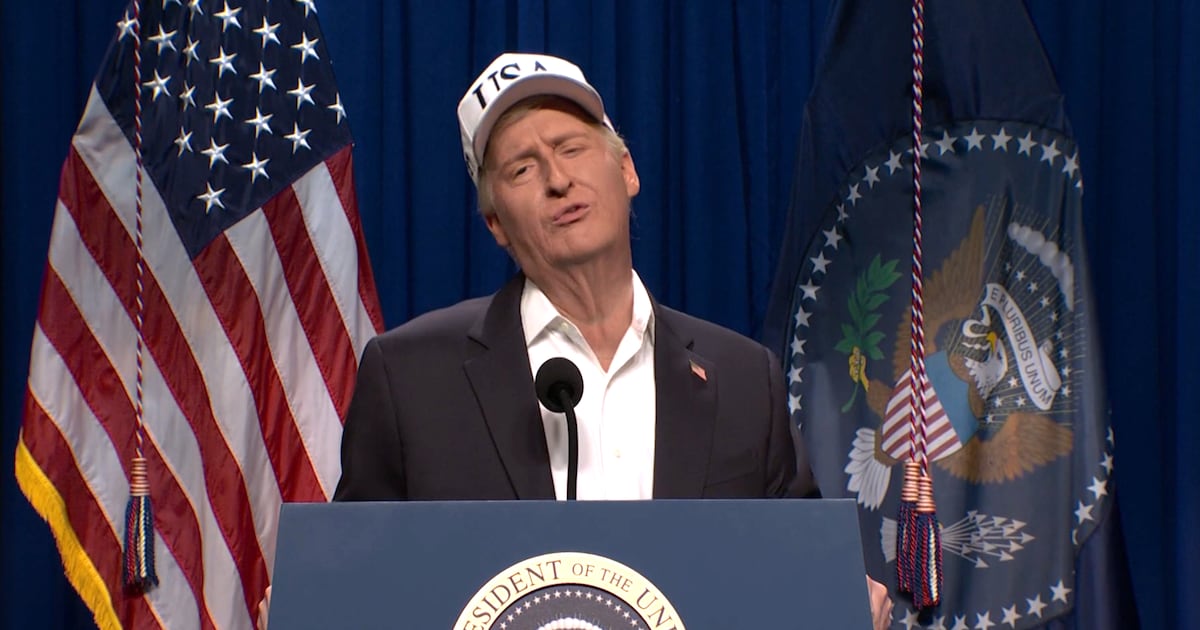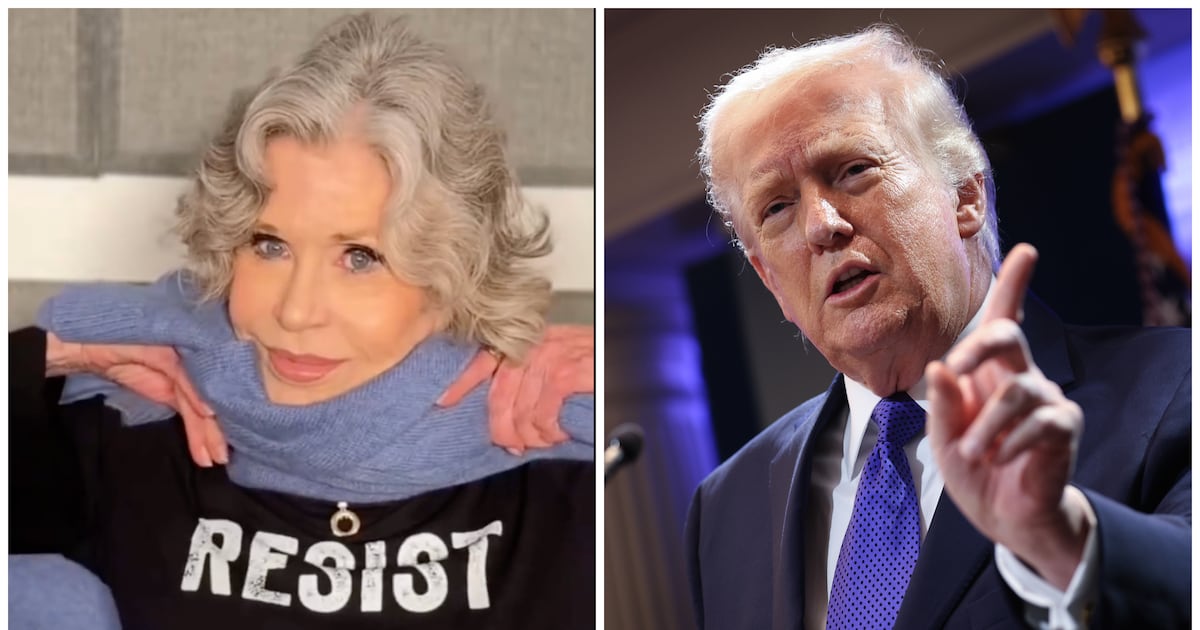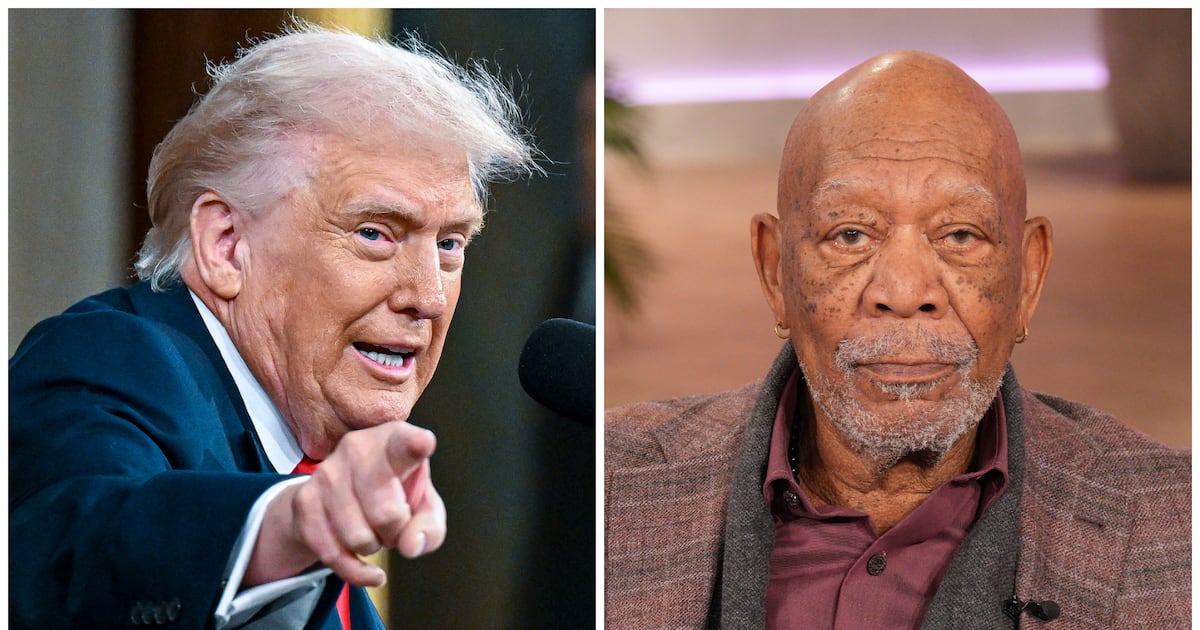The work of writer Carl Hiaasen—who has written over 30 novels chronicling a variety of outrageous and absurd Florida crimes—has been long overdue for a screen adaptation worthy of his irresistibly wry humor intertwined with bleakness. At first blush, Bill Lawrence might seem like a counterintuitive choice to be the one doing the adapting. After all, Lawrence is best known for his work on beloved, often heartwarming sitcoms like Ted Lasso and Scrubs, not prickly sunshine noir, but what he’s brought to AppleTV+ with Bad Monkey, a series version of one of Hiaasen’s most popular novels, is a surprisingly existential end-of-summer treat.
Bad Monkey’s intricate plot—here juicy and silly, there a blood-chilling thriller—chronicles the fallout of a Florida Keys life insurance scam perpetrated to provide the seed money to build a high-end resort on Andros in the Bahamas. At the center of the drama is Detective Andrew Yancy (Vince Vaughn), the motor-mouthed, downwardly mobile detective who follows his nose (also, occasionally, his libido) to crack the case. Along the way, the somewhat disgraced investigator—suspended for that most relatable of crimes, using his Key West Police Department vehicle to shove the golf cart carrying his sometimes-girlfriend’s jerk of a husband off of a pier—teams up with a restlessly brilliant young medical examiner, Rosa Campesino (Natalie Martinez), to uncover the truth about Nick Stripling (Rob Delaney), the supposedly deceased owner of the severed arm at the center of the insurance scam.
Lawrence sat down with The Daily Beast’s Obsessed to reflect on his desire to revive noir in film and on TV, the role of coaching and mentorship across his work, and the impossibility of maintaining an unblemished veneer of success when you really just want to write shows about people who are striving to be, at most, good enough.
***
When considering the long road to successful screen adaptations of Hiaasen’s novels, Lawrence is pragmatic, noting that a big stumbling block has been the misperception of books like Bad Monkey as “capers that you could do in 90 minutes”. He offers the example of Mike Nichols, who spent a lot of time “trying to turn Skinny Dip into a movie starring Harrison Ford, and couldn’t crack it,” a failure he ascribes to Hiaasen’s books being “character pieces—once we got to a world that could do it in 10 hours, then it becomes possible” to adapt them well, incorporating all of the beats and colorful side characters that furnish the source material’s instantly recognizable zinginess.
Unsurprisingly, one of the biggest keys to unlocking and unleashing the high-appeal screwball energy of Bad Monkey was the casting. Vince Vaughn seems born to play Yancy—no other American actor currently working has the motormouth chops the role demands—making the actors playing the female characters who surround Yancy even more essential. In Hiaasen’s work, Lawrence says, “the women are never just the girlfriend,” making it easy to sell actors like Martinez and Michelle Monaghan on the roles. Lawrence described the role of Yancy’s occasional girlfriend Bonnie to Monaghan by describing her as not at all a standard girlfriend, but a far meatier “kind of narcissistic sociopath that learns very little” over the course of her story arc.

Ronald Peet and Jodie Turner-Smith in Bad Monkey.
Bob MahoneyOver on Andros, where the second major plot unfolds following Nick and Eve Stripling’s resort-building scheme, Yancy’s counterpart Neville (Ronald Peet) is just trying to maintain his present lifestyle of fishing daily and hanging out with his grape enthusiast monkey, Driggs (Crystal The Monkey). After running afoul of the Striplings and their henchman Egg (David St. Louis), Neville enlists an intimidatingly powerful Obeah practitioner, the Dragon Queen (Jodie Turner-Smith), to rid himself of the Striplings and be able to rebuild his beloved fishing shack. Early in her process of character development, Lawrence says, Turner-Smith “made the decision that even when it would be okay to joke around, she wouldn’t,” choosing instead to play the Dragon Queen’s journey as the life-or-death, good vs. evil arc that it is.
Lawrence believes that Hiaasen’s lovingly critical vision of Florida, brought to engrossing and compulsively watchable life on screen at last, is poised for a big moment similar to what his late friend Elmore Leonard experienced as his books were adapted into films like Get Shorty and Out of Sight and TV series such as Justified.
Lawrence is a true believer, animatedly declaring that If Bad Monkey reaches an enthusiastic audience, “I would be shocked if Hiaasen’s books didn’t start becoming streaming shows, because they’re so eclectic and eccentric and weird and specific—he’s just a great American satirist.” Lawrence’s particular expertise is in comedy, but his work leans far warmer than even a crime drama with a sense of humor, mining everyday events and lived-in relationships for opportunities to poke gentle, insightful fun, or to furnish puckish charm. Put it down to the veteran creator, writer, and showrunner describing himself as being “only good at writing things that are at least semi-tied to my own personal realm of experience”.
On the other hand, Lawrence has “reached a point career-wise where I get to pursue passion projects” and has chosen to leverage his not-quite-carte-blanche capital by reviving noir, a genre whose disappearance from the culture Lawrence finds baffling. He credits series cinematographers John Brawley and Michael Watson with helping imbue Bad Monkey with a callback to a classic noir visual element of neon glowing mysteriously through darkness by using the Keys’ legally mandated red streetlights (a measure that encourages sea turtle hatchlings to crawl towards the ocean). It’s congruent with Bad Monkey’s world, and “even if viewers don’t register it intellectually, the subtext is ‘oh, there’s something cool about this that I’m digging on’” visually.

Vince Vaughn in Bad Monkey.
Apple TVGiven time to think it over, Lawrence’s affinity for the thorny emotional complexity of noir is clearly of a piece with his own work. Even in rollickingly funny episodes of Shrinking and Ted Lasso, Jimmy Laird and Ted himself are navigating intense grief. Bad Monkey takes advantage of The Keys’ almost aggressive brightness to weave in its noir elements, but then again, all that sunshine also yields the stiflingly hot, sweaty atmosphere so integral to the genre.
Lawrence believes that noir isn’t even that long-gone from popular film and TV. It just seems that way because “people’s memories play tricks on them,” making them recall films like Beverly Hills Cop and 48 Hours as straightforwardly funny action comedies, when both are also undergirded by examinations of racism, alcoholism, and grief. Some time in the pitching process, Lawrence recalls, someone described his vision for the series as “a little too much like a throwback. They said it as an insult, but I’m like, ‘That’s a compliment, dude!’”
Talking about the various profundities of buddy comedies leads quite naturally to a recurring theme and character type across much of Lawrence’s work: the person, usually a man, who doesn’t aim to optimize anything about himself, instead pursuing good-enough, steady adequacy, with help from trusted friends and colleagues. It’s a lower-stakes model of mentorship, coaching at the speed of life as actual people experience it.
Ted Lasso needs to forgive his father’s death by suicide and actively address his own anxiety. Jimmy Laird needs to find a way past the guilt he feels as the widower who was secretly in a really rough patch with his late wife. Everything Yancy “wants is right there for the taking, but he can't get out of his own way,” a characteristic Lawrence recognizes in himself, as well. His high school creative writing teacher encouraged him to skip “going and smoking pot at lunch with friends across the street” in favor of spending time in his classroom to “talk about books and TV and movies.” Lawrence later honored that teacher, Mr. Cox, by giving his name to J.D.’s crotchety and devoted mentor on Scrubs.
In its small way, Lawrence’s consistent centering of his work around people who are deeply okay is a minor act of rebellion, a bit of resistance to the entertainment industry’s unrelenting demand for creative types to perform being booked and busy at all times. Instead of talking up a movie in development or pilot likely to be sold, Lawrence recalls often infuriating his representation team by freely acknowledging “I can’t get anything going, I feel like I’m drowning.” On the other side of that, though, is the authenticity of moving “past that shit and just being real. I think people find it refreshing. I hope they do.”
New episodes of Bad Monkey are available on AppleTV+ on Wednesdays through October 9.

